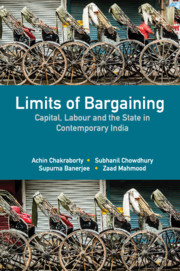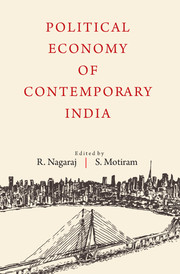Making Cars in the New India
Auto manufacturing holds the promise of employing many young Indians in relatively well-paid, high-skill employment, but this promise is threatened by the industry's role as a site of immense conflict in recent years. This book asks: how do we explain this conflict? What are the implications of conflict for the ambitious economic development agendas of Indian governments? Based upon extensive field research in India's National Capital Region, this book is the first to focus on labour relations in the Indian auto industry. It proposes the theory that conflict in the auto industry has been driven by twin forces: first, the intersection of global networks of auto manufacturing with regional social structures which have always relied on informal and precariously-employed workers; and, second, the systematic displacement of securely-employed 'regular workers' by waves of precariously-employed 'de facto informal workers'.
- Presents the first book on labour relations/labour conflict in the Indian auto industry
- Based upon field research, interviews and analysis of company reports and government documents
- Includes maps of all key industrial sites in Indian auto manufacturing and lists of all key companies and their characteristics
Reviews & endorsements
‘In this important book, Tom Barnes cautions against any exaggerated hopes about a high-road development path based on automotive industrialisation in India. Characterised by informal labour, he reveals that car manufacturing has not resulted in high levels of labour standards and employment relations for Indian workers. A must-read, questioning development expectations related to the rise of the BRICS.' Andreas Bieler, University of Nottingham
‘Tom Barnes masterfully synthesises global production network analysis with uneven and combined development to debunk not only the view that participation in these networks necessarily leads to development but he also vividly captures why and how India's auto workers, especially in the supplier industry, bear the economic and political costs of an expanding industry.' Anthony P. D'Costa, University of Melbourne
‘Barnes' book is a very useful addition to the literature on global production networks in India. More importantly, it joins a new, vibrant and timely literature concerned with the ways in which the process of labour informalisation manifests regionally across the subcontinent, systematically expanding workers' precarity and vulnerability across a rising number of industrial sectors.' Alessandra Mezzadri, School of Oriental and African Studies, University of London
Product details
May 2018Paperback
9781108433792
278 pages
227 × 153 × 17 mm
0.36kg
Available
Table of Contents
- Tables, figures and maps
- Acknowledgments
- Abbreviations
- 1. The limits of industrialisation
- 2. The auto industry in India today
- 3. Auto manufacturing and the evolution of industrial policy
- 4. The transformation of labour relations
- 5. Auto workers in India's national capital region
- 6. Work and life at the bottom of the auto supply chain
- 7. Driving down the 'low road'?
- Appendix
- Bibliography
- Index.






